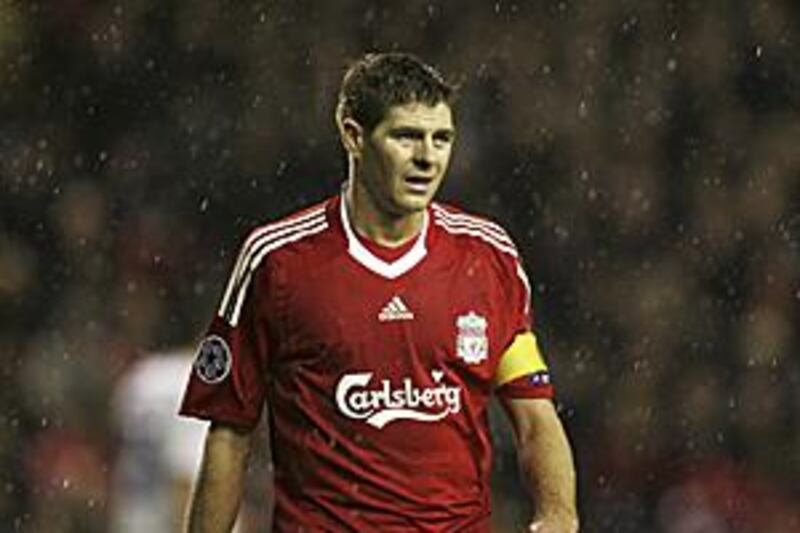Liverpool rarely need a reason to reminisce about the past, but this week offers two anyhow. A plight that was compounded by Sunday's 2-1 defeat to Arsenal can render their history infinitely more preferable, even without a landmark. But yesterday, 28 years after his death and in the month of the 50th anniversary of his appointment at Anfield, Bill Shankly was made an honorary citizen of Liverpool.
In December 1959, a promising but unexceptional managerial career ended and a legend began. It is the fate of every subsequent Liverpool manager to be measured by the standards Shankly set. With the notable exception of Bob Paisley, none are flattered by the comparison. Now it is Rafa Benitez's turn. The charismatic Scot and the stolid Spaniard may seem to have little in common. Indeed, the former said: "If you are second, you are nothing." Benitez, at the moment, is seventh in the Premier League.
Shankly, too, stated that the two finest teams on Merseyside were Liverpool and Liverpool reserves. That, of course, was before a second-string 11 that included Andriy Voronin and Sotirios Kyrgiakos. Yet Shankly's legacy goes far beyond that. Since he transformed a struggling second- division club, Liverpool supporters have liked to believe their manager has mystical powers. In the subsequent half-century, only Graeme Souness and, to a lesser extent, Gerard Houllier, have been hounded out of a job.
The mystique of the boot room has seduced some while others are fervent believers in what they termed the Rafalution. It explains why, to the bemusement of supporters of some other clubs, the Kop is not calling for Benitez's head. So, too, does the financial situation. Benitez's admission on Friday that the priority in the summer was to reduce the club's debts, caused by co-owners Tom Hicks and George Gillett, rather than strengthening his squad, was notable, if only because it confirmed what was long suspected. Shankly, it is worth remembering, walked out of other clubs - Grimsby, in his case - because of a lack of investment. Benitez, despite the restrictions placed upon him, has not.
While the Scot often threatened to resign as manager before eventually handing in his notice in 1974, the Spaniard has passed over the chance to lead Real Madrid to stay on Merseyside. Commitment is not confined to the past. And while the three decades after Shankly's arrival brought unparalleled success to Anfield, it is easy to forget that Liverpool went seven years without a trophy, between 1966 and 1973, under a manager whose status was secure. It puts Benitez's position - in his fourth year without silverware - in context.
But Shankly's greatness was ensured at the end of his reign. His third league title came in 1973, when the Uefa Cup was also won. The FA Cup followed in his final year. That was his second outstanding team. For Benitez, who has only two survivors of his 2005 Champions League-winning side, it illustrates the task with a newer group of players. A constancy of purpose served Shankly well and Benitez, a similarly obdurate if rather less quotable character, has to show the same determination.
Because, if he completes the five-year contract he signed in March, Benitez will become Liverpool's longest-serving manager since Shankly. To finish it, however, he must oversee an improvement, rather than the meltdown Souness apocalyptically predicted last week. With Steven Gerrard and Fernando Torres back, there is a solitary crumb of encouragement. But confidence is lacking as Benitez admitted after the defeat to Arsenal.
Shankly, the master motivator, excelled at making his charges believe. Now the most vocal protest group among fans is called Spirit of Shankly. More than ever, Benitez needs to demonstrate that he possesses the spirit of Liverpool's most iconic manager to rouse his struggling team.
Chelsea's defence has been breached only 13 times this season, but that includes 11 set-pieces. Each of Everton's goals in Saturday's 3-3 draw came from dead-ball situations and, while Chelsea fielded such sizeable players and such able headers as Didier Drogba, Michael Ballack, Branislav Ivanovic, Ricardo Carvalho and John Terry, uncertainty has been spread from the back. For years, Petr Cech's teammates have regularly proclaimed him the best goalkeeper in the world. On his current form, he is a long way from being the finest in England. "I always said that Chelsea would drop points. They have and they will. Everybody will," he said.
Arsene Wenger is emerging as the most astute analyst of an unpredictable title race. While others regarded Chelsea as invincible, the Arsenal manager retained a quiet confidence. Victory at Anfield on Sunday leaves Arsenal only six points behind the leaders and with a game in hand. Written off after their defeats to Manchester United and Chelsea, Arsenal remain very much in contention.
Goal of the weekend, and perhaps of the season, came at Stoke's Britannia Stadium on Saturday when Wigan's Maynor Figueroa's quick thinking and combination of precision and power enabled him to score from a 61-yard free kick. He joins David Beckham and Xabi Alonso in an elite group of Premier League players who have scored from their own half. Richard Jolly is an authority on the English game and has written about all four professional divisions for, among other titles, The Guardian and The Sunday Telegraph rjolly@thenational.ae






